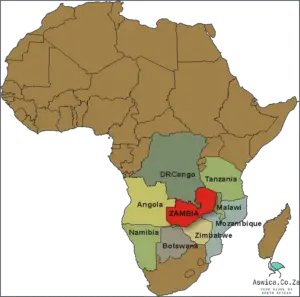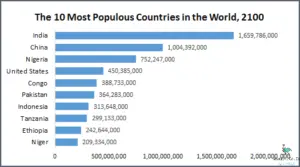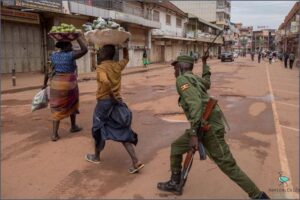
Since the end of apartheid in 1994, South Africa has struggled to address the high levels of police brutality and violence. In the past two decades, there have been several high-profile cases of police brutality that have garnered national and international attention. In many cases, the victims of police brutality are poor, black South Africans who are seen as easy targets by the police.
There are a number of factors that contribute to police brutality in South Africa. One of the most significant is the legacy of apartheid. During apartheid, the police were used as a tool of oppression, to maintain white minority rule. This culture of violence has been carried over into the post-apartheid era.
Another factor that contributes to police brutality is the high levels of crime in South Africa. The police are under immense pressure to crack down on crime, and this often leads to them resorting to excessive force.
Lastly, there is a general lack of accountability within the police force. Police officers who commit acts of brutality are rarely punished, and this only serves to encourage more violence.
The problem of police brutality in South Africa is a complex one, and it will take time and effort to address it. In the meantime, it is important
Contents
What Causes Police Brutality In South Africa
Police brutality in South Africa is a growing problem that is driven by a variety of factors. Poor training and a lack of oversight are key contributors, as police officers are not adequately equipped to manage violent situations. Racial tensions are also a cause, as police are often accused of targeting people of color. Moreover, there is a lack of accountability, as police are rarely held accountable for their actions. Poverty is also a key factor as police may view people from disadvantaged backgrounds as criminals and treat them accordingly. Finally, the culture of impunity and the prevalence of corruption within the police force further contributes to police brutality in South Africa.
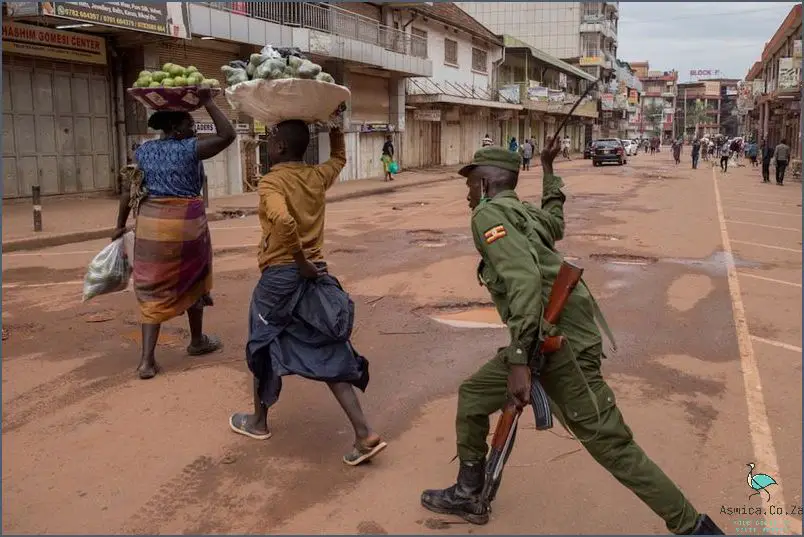
Historical Context of South African Police Brutality
South African police brutality has a long and dark history that has had a lasting impact on the nation. The South African Police Service (SAPS) was established in 1994, following the fall of apartheid. Since then, the SAPS has been accused of using excessive force, particularly against black and other minority groups.
The roots of this police brutality can be traced back to the colonial period and apartheid. Under the apartheid system, police were used as an instrument of state-sponsored racial violence and oppression. This included the use of torture and extra-judicial killings. This legacy of violence has left a deep scar in the nation’s psyche.
The post-apartheid period saw the police force become increasingly militarized, with the use of riot gear, rubber bullets and other forms of non-lethal weapons becoming commonplace. This has resulted in a higher number of fatalities and injuries as a result of police action. The police have also been accused of using excessive force during protests and demonstrations.
In addition, there is a long-standing mistrust of the police among black and other minority groups. This is partly due to the fact that the police have been accused of racial profiling and the targeting of certain groups. This has created a vicious cycle of tension between the police and these communities, which has led to further incidents of police brutality.
The South African government has taken steps to address the issue of police brutality, including the establishment of the Independent Police Investigative Directorate (IPID). The IPID is tasked with investigating allegations of misconduct and abuse by the police. However, it has been criticized for its lack of independence and its failure to hold police officers accountable.
The issue of police brutality in South Africa is a complex one, with a long and complicated history. It is clear that it is an issue that needs to be addressed in order to ensure a safer and more just society.
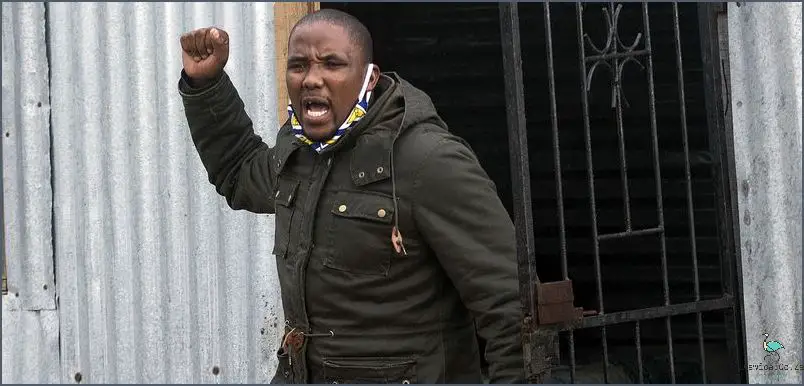
Causes of Police Brutality in South Africa
Police brutality in South Africa is an unfortunately common occurrence. It is defined as the use of excessive force by law enforcement officers in response to a perceived threat, or when dealing with suspects or members of the public. This type of violence is often used as a way to maintain order or control, as well as to demonstrate power and authority. Unfortunately, police brutality in South Africa is often used as a tool to intimidate and oppress vulnerable members of society, such as the poor, racial minorities, and those living in underprivileged communities.
The root causes of police brutality in South Africa can be traced back to the country’s long history of discrimination and inequality. Under apartheid, there was an extreme segregation between different racial and ethnic groups. This was further exacerbated by the subsequent economic and social disparities that followed. As a result, many South Africans are still struggling to gain access to basic services, such as education and healthcare. This lack of social mobility creates a cycle of poverty and despair, which can often lead to frustration, anger, and desperation.
Additionally, police brutality in South Africa can also be attributed to a lack of training and resources for law enforcement officers. Many South African police officers are not provided with adequate training or equipment to handle dangerous situations. This leads to a higher risk of police officers using excessive force, and sometimes deadly force, when responding to a perceived threat. Furthermore, police officers in South Africa are not always held accountable for their actions, which perpetuates a culture of impunity and encourages officers to use excessive force.
Finally, police brutality in South Africa is also linked to the militarization of the police force. This can be seen in the increased use of military-style tactics, such as SWAT teams and armored vehicles, as well as the use of lethal weapons, such as firearms and rubber bullets. This type of force is often seen as a way to intimidate the public and maintain control over certain groups, which can lead to further abuses of power.
In conclusion, police brutality in South Africa is a complex issue with deep roots in the country’s history of inequality and discrimination. To combat this issue, it is necessary to address the underlying causes of police brutality, such as poverty, lack of training and resources for law enforcement officers, and the militarization of the police force. Only then can we begin to create a safer and more equitable society for all South Africans.
Impact of Police Brutality in South Africa
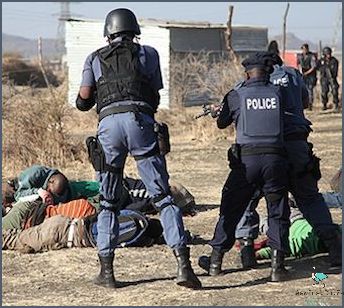
Police brutality in South Africa has become a major issue over the past few years as a result of a number of high-profile incidents involving officers using excessive force, or in some cases, violence against citizens. This type of behavior is a violation of human rights and, unfortunately, it is not uncommon in South Africa.
The causes of police brutality in South Africa are complex and often involve a combination of economic, social, and political factors. Poverty and inequality are two of the most significant contributors to police brutality in the country. South Africa has one of the highest levels of inequality in the world, with a large gap between the wealthy and the poor. This inequality often leads to a feeling of frustration and anger among those living in poverty, which can manifest itself in the form of violence against police officers.
The lack of resources and training for officers is also a major factor in police brutality in South Africa. Many officers are poorly trained and do not have access to the necessary equipment to properly carry out their duties. This lack of resources and training can create a situation where officers are more likely to resort to excessive force in order to resolve disputes.
In addition, the political environment in South Africa can also contribute to police brutality. The country has a history of political repression, which has led to a culture of distrust and fear of the police. This can lead to citizens feeling that they cannot trust the police to protect them, which can lead to aggression and violence towards officers.
Finally, there is a lack of accountability and transparency in the police force in South Africa. There have been numerous instances of officers being accused of misconduct but not facing any repercussions. This lack of accountability can lead to officers feeling that they can act with impunity, which can lead to a culture of brutality and abuse within the force.
Overall, police brutality in South Africa is a complex issue that is caused by a variety of factors. Poverty, inequality, lack of resources and training, political repression, and a lack of accountability are all significant contributors to police brutality in the country. It is important for the government to address these issues and ensure that police officers are held accountable for their actions. Only then can South Africa truly address the problem of police brutality and create a safer environment for all citizens.
Conclusion
In conclusion, police brutality in South Africa is a complex issue with numerous root causes. Factors such as a lack of training and resources, a lack of accountability within the police force, poverty and inequality, racism, and a culture of impunity are all contributing to the problem. Without addressing these underlying causes, it is unlikely that the issue of police brutality in South Africa will be effectively addressed in the near future. It is essential for the government, law enforcement, and citizens to take collective responsibility for tackling this problem, in order to ensure the safety and security of all South Africans.

